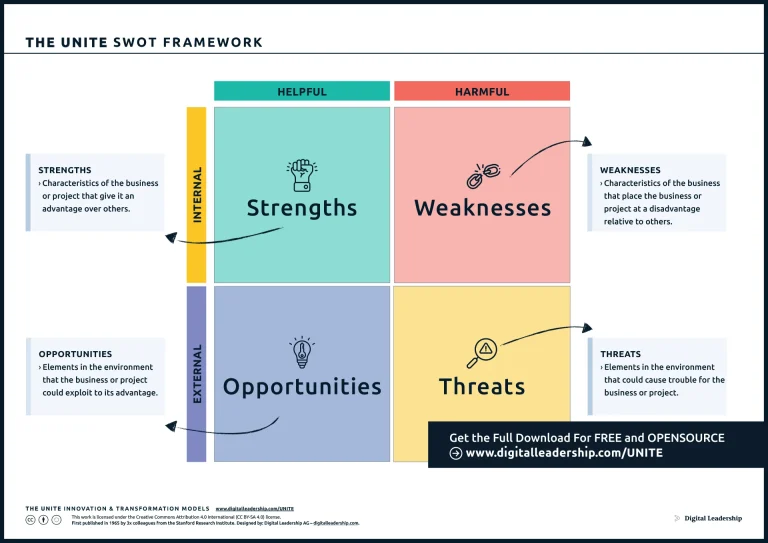Table of Contents
Top 10 Reasons Startups Fail
Over 90% of the startups in the US fail within the first three years of business. The UNITE Innovation Approach helps you plan and structure your growing business from start to finish so that you are well prepared to survive the critical first few years of doing business.
Sometimes, running a lean startup can be challenging, especially if you’re new to the business world and are not much aware of the reasons so many startups fail. Indeed, you’ll experience so many limitations and challenges in the early months or years of the business. Therefore, before you embark on your journey of building a successful startup, it’s important to note that every thriving business you see today has its fair share of challenges.
If you want your startup to excel, you must do the needful to overcome such challenges.
Running a startup successfully may seem impossible, especially if you’re not fully prepared for all the hurdles you must surmount. A scary statistic released by Forbes stated that over 90 percent of the startups in the US fail within the first three years of business.
The issue with creating a successful startup in the US or any part of the world the multiple reasons why startups fail or can fail. Do you attempt to expand too quickly or do not properly plan for the future of your brand? There are different aspects you need to handle effectively if your business is to experience notable progress.
Here in this post, we will extensively talk about why startups fail and how you can position yourself to overcome such challenges.
Why Do Most Startups Fail?
Let’s have a look.
Lack of proper Planning
One of the most common reasons why startups fail is a lack of proper planning. Yes, you heard that right. When you fail to plan properly, you have automatically positioned yourself for failure in the long run. Most entrepreneurs and business leaders are always in a hurry to launch their products and services without adequate planning, feasibility studies, and market survey.
Having a great business idea is not all that is needed for the success of a business. If you want sustained success, you need to combine your business idea with a comprehensive business plan, value proposition, Business Model, and innovation strategy.
Lack of proper planning means certain aspects of your business will suffer, and you will not have a reliable marketing strategy, which can be frustrating, especially if you’re just starting.
Without proper planning, you will not know where you are and where you’re heading as an organization. This, to me, is one of the major reasons why startups fail.
While creating a business plan may seem like an irrelevant task, it will allow you to have a road map you can fall back to at any point you feel stagnated. A business plan is a formal document that contains business goals, strategies, and methods for executing the strategies and attaining the goals. The business plan contains everything about the business. Unfortunately, this is where many startups miss it. They rush into starting a business without a comprehensive business plan and adequate planning. Hence, they end up failing.
Hiring the wrong set of people
If you’re an entrepreneur and business leader who want to build a successful brand, you’ll understand that you need to work with the right team to achieve your business goals. Unfortunately, many startups hire unprofessional who are not right for the job.
For example, most startups will focus on hiring their families and friends who lack the expertise needed for a particular position rather than hiring experts in the field. In the initial stage of your startup, you must hire people who are fit for the job. If you hire the right people, you will have the right results and experience growth in all ramifications.
If you’re just starting and have never hired employees before, some general hiring tips will make the process worthwhile for you. For instance, you need to ask each prospective employee why they feel they are right for the job. You should also look out for those you want to be part of your team, and try to fit their personality to the job. More so, the best way to simplify the process is to have proper HR within your startup. When you hire an HR team, they will help you hire and train the right people you need to work with.
Behind every great company or business, you see thriving today is a great team working things out. Do trade working with the right people for anything. It largely determines how successful your business can be.
Expanding too quickly
This is also another major reason why startups fail. They set out to expand the business too early without mastering the industry and other market forces. Therefore, they end up failing wolfly. The truth is that sometimes it can be difficult to ascertain the right time for expansion, especially if you’ve never run a startup before.
If you don’t understand that there is perfect timing for expansion, you will launch out for expansion too quickly when you don’t have the capacity for the demands that come with expansion. This also boils down to the first point we discussed, lack of planning.
When startups have a comprehensive business plan, they will understand the steps they need to take to achieve their overall goal. They will also know when to start expanding. The truth of the matter is that without a proper business plan, you will likely find it hard to determine the right time to start expanding and will easily cause you to start expanding too quickly.
The implication of expanding too quickly is that you may be unable to manage every other aspect of the business like you used to, which may be glaring to your customers. Some of the challenges of expanding your business too quickly include: more expenses, hiring the wrong employees, making serious management mistakes, and not properly scaling customer service.
Even only one of these problems can make you fail in your overall strategies.
As a caution, only expand when you have the requisite finances, manpower, time, experience, skills, and strategies needed to move your business to the next level.
Lack of online presence
These days it is somewhat impossible for a startup to be successful without a strategic online presence. Yes, you heard that right. For your startup to be successful in this era, you must intentionally build an online presence for your company. Most startups fail because, at the initial stage, they focus all their energy, time, and resources towards delivering their products and services to the market, paying less attention to their online presence. The best way to build a robust customer base and appeal to the 21st-century target market is by setting up a robust online presence that requires effective digital marketing skills.
To build a strong online presence that elevates your brand, you need to build a website for your business and your social media presence on LinkedIn, Instagram, Twitter, Facebook, and every other social media platform your target audience use.
The main strategy for marketing your brand successfully on your website or across your social media platforms is to regularly provide your customers with relevant content related to your products and services. A strong online presence can help expand your startup to an enviable height.
Lack of adequate funding
Most startups have great business ideas but lack the requisite funding and resources to grow and expand. Among the reasons why startups fail, lack of adequate funding contributes the most. The truth of the matter is that if you have a great business idea that you believe can be successful, you need many finances to be able to grow and expand the business in years to come. The initial funding capital of most startups consists of personal income and investment from friends and family.
However, you need much more than that to grow your business.
Although lack of adequate funding is a common reason why startups fail, it is also the simplest problem to overcome. The reason is the different ways to get funding for your business nowadays.
The first type of funding you need as a startup is to attract angel investors. These are firms or individuals looking for new and exciting startups to invest in. Other types of funding you should seek include small business grants and venture capitalists. By having adequate financial resources at your disposal, you will be able to solve all financial-related problems in your business.
Poor products and services
Another major reason why startups fail is offering poor products and services to customers.
The fastest way to kill your brand is by offering low-quality products and services. Customers are attracted to brands that offer real value. If you want more sales, you need to invest heavily in delivering high-quality products and services to your customers. This is all about understanding the Value Creation Process in business. Unfortunately, this is where most startups miss it. They compromise standards. They start well but end up reducing quality along the way. The truth is that your customers know when you have reduced quality and if you continue in that line, you’ll end up losing happy customers.
As a startup, know exactly what your target market wants, and be willing to provide high-quality products and services in that regard. This is the only way to maintain loyal customers. Think of customer satisfaction in every aspect of your business first.
Pricing conflicts
This is another big mistake startups make that eventually leads to their failure. When you are setting a price for your products and services, it is essential that the prices will be appealing to your target market and won’t conflict with their expectations. If the products and services you offer are reasonably priced, it’s important that you stick to this approach.
Many startups drift along the line and price their products higher to market them as luxury products. This marketing strategy may work from time to time for some companies, of course. Nonetheless, it is very risky for lean startups that are yet to gain their customers’ loyalty.
Initial high pricing of your products and services can limit the target market you can reach. Avoid pricing conflicts at the initial stage of your business.
Lack of excellent customer-focused ideas
Many startups fail because they are not customer-centric in their business strategy and approach. If you want to record continued success in your business, demonstrate your customers their importance to your business. You must put your customers first in every business approach.
For example, do you have effective customer service? Can your customers reach you any time of the day to get a solution for all their complaints? If you can’t confidently answer these questions, then you’re probably not doing enough to have effective customer service. For your business to thrive, you need to create a cordial relationship with your customers.
If you run a website or social media page on Facebook, one of the best ways to communicate value and show your customers how important they are is by engaging them in the comment section and by promptly answering/responding to every question they raise. If you’re sincere a d loyal to your customers, they will reciprocate that same gesture to you and your brand.
Without making adequate arrangements for your business to be customer-focused, you are already positioning your startup for failure.
Poor management team
Once you’ve scaled the initial stage of your startup, you’ll most likely need a management team to help with the smooth running of your business. Most startups fail at this stage because they hire the wrong team to manage their business. One common problem with a poor management team is that they don’t provide employees with the right leadership structure and motivation. This poor management team could be providing employees with poor guidance, which already positions them for failure…
Some management teams can be slack and lazy on a consistent basis. This invariably means that work won’t get done as at when due and business goals won’t be achieved. You must hire the right management team because it goes a long way in telling how successful your business can be.
The individuals that constitute the management team must know how to handle large projects, and work with people to achieve common goals. The first step toward building a successful startup is hiring the right team to work with.
Stiff market competition
Last but not least reason why most startups fail is penetrating a market or industry with high competition. For example, any new startup trying to go into smartphone production will find it difficult to penetrate a market dominated by Apple, Samsung, and other leading smartphone brands.
While it’s almost impossible not to have competitors in any new market, you don’t want your products and services to compete with strongly established brands. Starting out in an industry with high competition makes it difficult for your company to stand out.
If your closest competitors are brands or companies with years of track record, it becomes difficult to gain a fair share of the market.
Related: The UNITE Value Proposition Canvas: The Beating Heart of the Business Model
Conclusion
If you want to build a successful startup business, it’s important that you know the reasons why startups fail. After you fully understand these reasons, you should know what to do to avoid these mistakes that can make your startup fail. No business can thrive if they don’t know what to do to overcome challenges that come its way.
We believe his post has helped you gain a deeper understanding of why most startups fail.
If you have other reasons you would like to share with us, you can do so in the comment section below.
Cheers to your continued success.


































 Book How to Create Innovation
Book How to Create Innovation